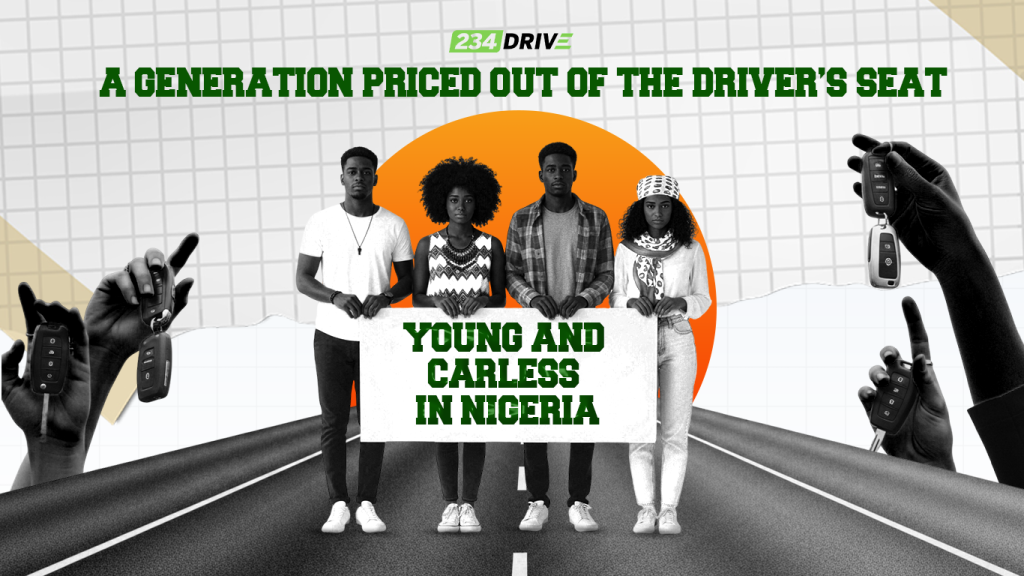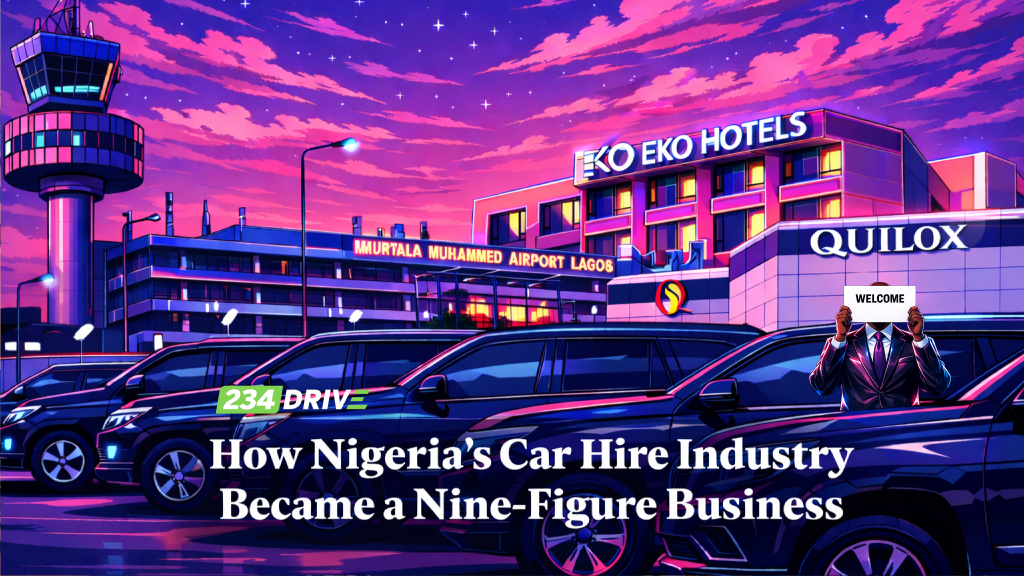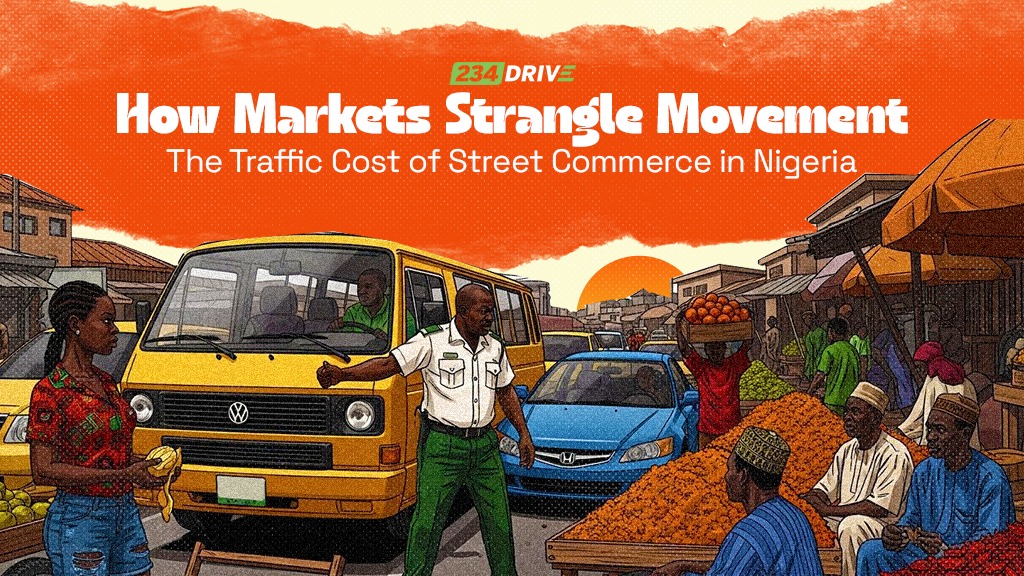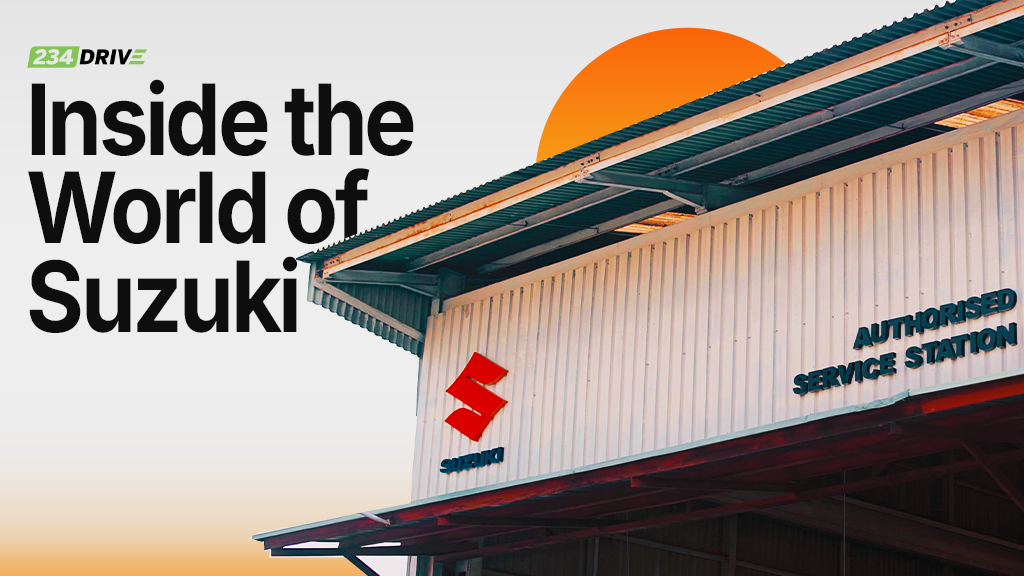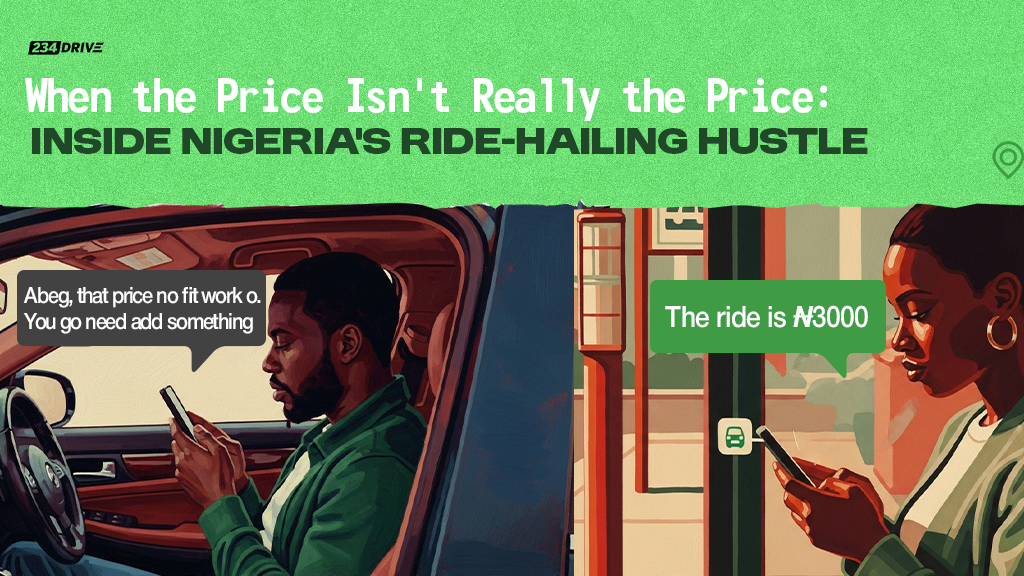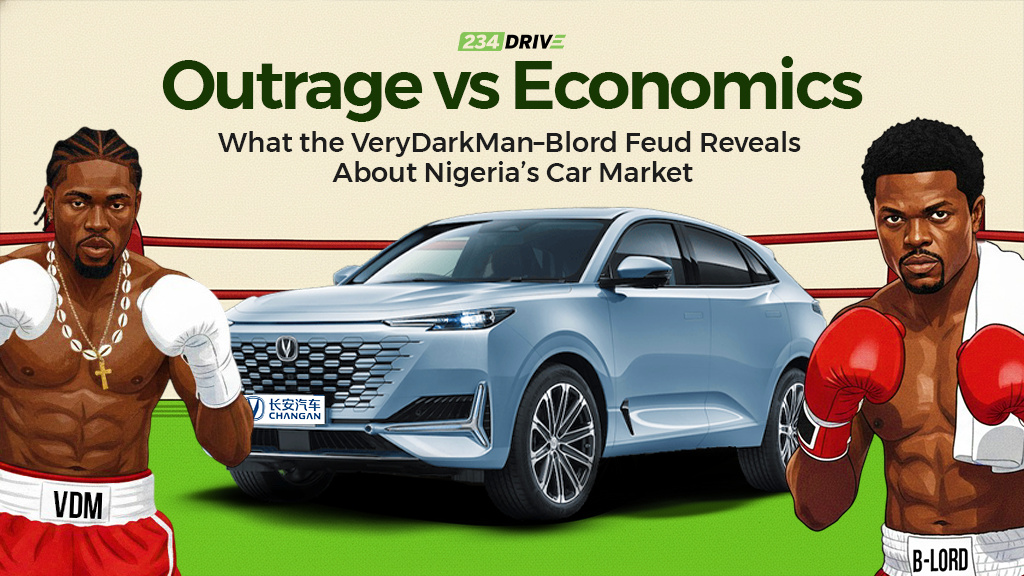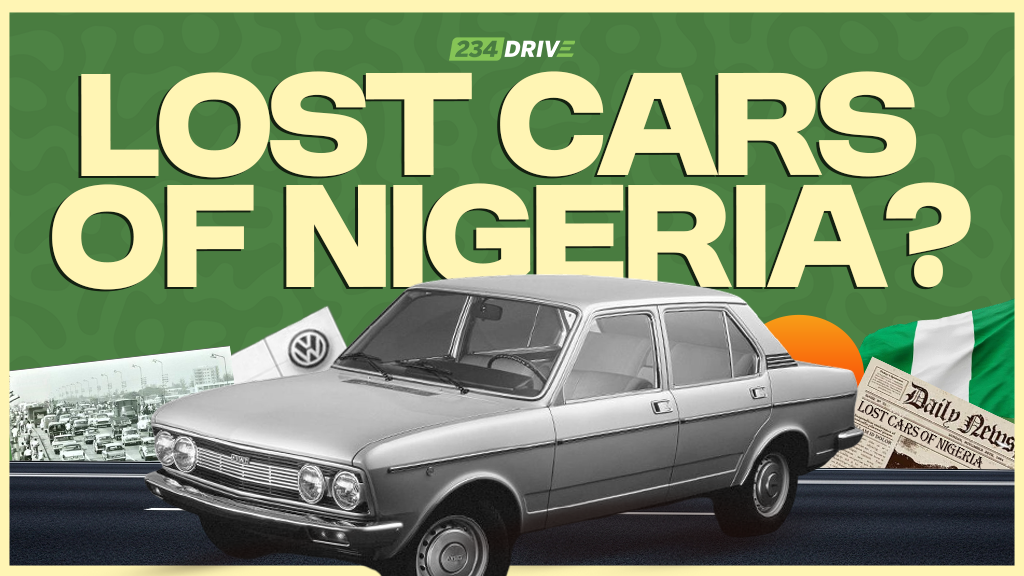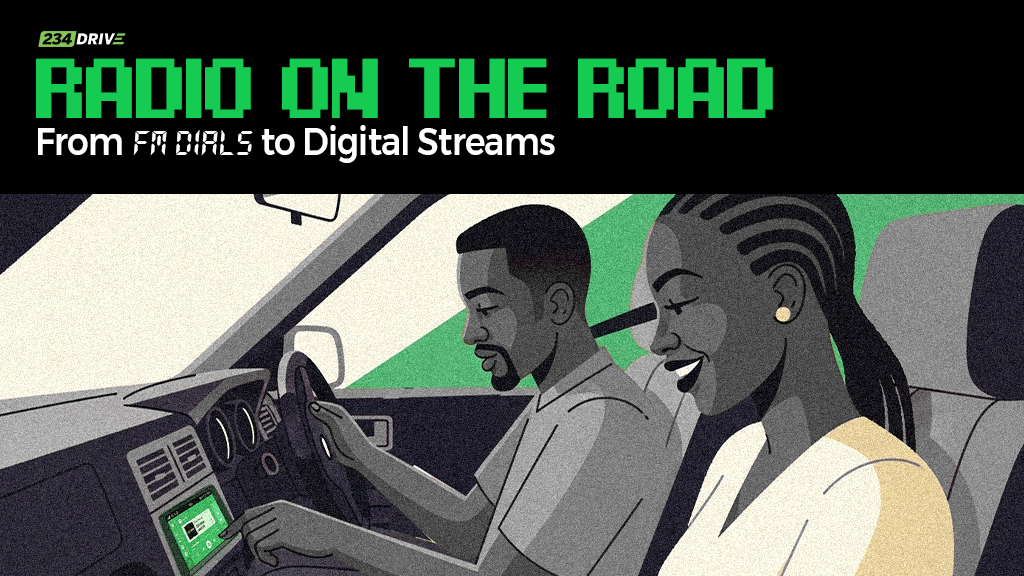Once upon a time, owning a car in your twenties felt like the natural order of things for middle-class Nigerians. Not a flex, just a classic rite of passage into adulthood. These days, that trajectory has veered off course. For many young Nigerians, car ownership has quietly slipped from milestone to myth—sort of like getting uninterrupted power supply.
And it’s not for lack of desire; the math just isn’t mathing. In the good ol’ days—and by this, I mean 2013—you could land a 2005 Honda Accord (AKA ‘End of Discussion’) for under ₦2 million (then $13,300). Fast forward a decade, and those same cars are now priced like vintage artefacts, out of reach for anyone earning anything remotely average. Throw in maintenance, fuel, some prayer (and maybe fasting) for stable forex rates, and the fantasy quickly deflates.
‘I’ve never felt close to owning a car since I started working in 2019,’ says Onosetale, a 26-year-old Lagos-based filmmaker. ‘Back then, I knew someone who got a cute used Toyota for ₦1.8 million [then $4,800]. It’s not like I have that amount just lying around somewhere, but if I could see a good car at that price today, I would find that money somehow’.
For Dara*, a 25-year-old creative who splits her time between Lagos and Ibadan, it’s not that she hasn’t had the money. Sometimes it’s there, but the timing isn’t right. Other times, a car is the priority, but the bank account disagrees. She shares, ‘I’m looking to spend at most ₦4 million [$2,500] on a car, when both pocket and timing align. I think that should be enough to get a rugged Toyota or Honda that doesn’t make too much noise.’
John*, a 27-year-old producer, has technically checked the box twice—but not without parental assistance. His first car was an ‘inherited’ 1998 Volkswagen Passat. His current car, a 2013 Hyundai Accent, was purchased, with some financial support from his parents, at a steal price of ₦2 million ($1,250) from a friend’s japa sales last year. ‘On my own, I don’t think I would be able to afford the car of my choice for another few years. I would want a more current car, which costs an average of ₦20 million, and that is way out of my earning bracket right now’
The Good Ol’ Days, When Car Ownership was More Attainable
There’s a shared nostalgia for a time when everything was just a bit more accessible. Onosetale believes her parents’ generation, i.e. the Gen X-ers, had it easier in their 20s, since the exchange rate was lower and they could turn to schemes like cooperatives. ‘I don’t think our parents were saving up to the entire amount needed to buy a car, but I think it was easier for them to turn to cooperatives for loans’.
But like I’ve said before, we don’t even have to go that far back. With the rate of Nigeria’s economic regression, the good ol’ days often just mean a couple years ago, or even last year. Tade*, a 33-year-old compliance professional, got her first (and current) car, a fairly used 2009 Toyota Corolla, for about ₦1.7 million in 2018. Serving in NYSC at the time, this price was not exactly within her reach, but after a scarring ‘one-chance’ robbery incident aboard a Danfo, a car switched from distant desire to necessity. ‘I was already thinking about getting a car, but at the time, Uber prices still made sense. You could get an Uber from Surulere to Lagos Island for about ₦1,200, and sometimes I’d take buses. But it was decided that I should get a car after the incident, so my family pooled the money together.’
Tade adds, ‘I definitely think my parents’ generation had it easier but let’s even look back just a few years. Honestly, the people who started working during the Jonathan era had it better. You could put money together and buy a car fairly quickly.’
Still, owning a car isn’t just about having the cash to buy it. It’s about what comes after. Maintenance on cheaper cars can be a nightmare. ‘There are some cars you’re better off not buying because what those cars will use your eyes to see will be unimaginable,’ Onosetale says.
So, many young Nigerians would rather wait to get a quality, reliable car than spend their 20s at the mechanic’s. In the meantime, ride-hailing apps like Uber and public transport will have to suffice—even if inflation means their prices are also becoming increasingly outrageous.
Interestingly, not everyone agrees that things have drastically worsened. My 60-year-old father argues that Nigerian youths have always been ‘managing’, rather than thriving in the country’s economic climate. He got his first car, a fairly used Mitsubishi Gallant, for ₦150,000 (then $1,000) in 2001. At 36 years old, my father was an editor of a national newspaper, what he calls the peak of his career as a journalist. According to him, this meant he fit conveniently in the middle class and yet, he couldn’t really afford to buy his car out of pocket. Also, a brand-new car, or even a Tokunbo (foreign used car) was completely out of the question. The latter would have cost at least double the price, which was an unattainable spend for him at the time.
Borrow Borrow Make Me Shine: The Case for Car Loans
In other parts of the world, car ownership doesn’t necessarily mean emptying your savings. Credit systems allow people to space out payments. For example, in America’s debt-heavy culture, people can take out car loans from as young as 18 years old and service those loans for years. In fact, 18- to 49-year-olds accounted for $102.9 billion in auto debt in the US just in the last quarter of 2024.
However, like John, many Nigerians weren’t ‘raised with the culture of credit’, so financing a car is simply not in the cards. ‘I have never thought about taking a car loan. I don’t even know what the structures entail. I saw an ad for a car loan the other day, but I didn’t really pay mind to it, because I’d rather just buy a car with my money and know it’s fully mine,’ Dara adds.
On the flip side, Onosetale is very open to the car loan option. However, now a full-time creative, the nature of her career makes it difficult to take one. ‘If I was still doing my 9-to-5 job, I would have taken a car loan by now. I know there are loans where the bank pays half and you cover the rest in instalments for 12 or 24 months. But my income is inconsistent, so it’s not a risk I can take right now.’
According to a 2024 report by The Nation, more Nigerians are slowly warming up to vehicle financing . Banks like Access Bank and the UBA have tried to capitalise on this shift by offering comprehensive auto loan packages. But the scale is still small compared to African countries like Kenya or South Africa.
In 2023, the Kenya auto finance market reached a valuation of KES 250 billion ($1.9 billion) and is expected to continue on an upward trajectory, according to a report by Trace Data Research. Financial institutions like NCBA Bank offer auto loans with tenures stretching as far as 48 months.
Khadija*, a 24-year-old lawyer in Nairobi, says she’s eyeing a KES 2 million ($15,500) car in a few years. She’ll likely need a loan to make it happen but isn’t rushing. ‘No one expects me to own a car at this stage in my life,’ she says. ‘Besides, cars were just cheaper in our parents’ time. You could take credit and still live on your salary.’
So…Who’s Still Buying?
Even with all the talk of the economy’s downturn blocking car ownership, traffic tells another story. Cars are moving. Dealerships aren’t empty. People are buying. Dara notices it too: ‘A bunch of young people still own cars. Whether they bought it or their parents helped. It’s one of those things, where even though we complain about the state of the economy, we’ll still fork out the cash to buy a car when it comes down to it.’
For many, car ownership symbolises security and autonomy. And in a pocket-watching society like Nigeria, it may even come with a bit of added status—professionally, socially, romantically. Still, with the way things are going, owning a car is no more the ultimate marker of success in your 20s.
‘You can be doing well, really well, and still not have a car,’ Tade says. ‘Because the economy is just not in your favour.’
So perhaps, being young and carless is just okay. It’s not ideal, but it’s not failure either. Just a detour. A dream deferred, but ultimately not denied. Until then, we’ll move how we can. We’ll manage. And every so often, we’ll laugh at the absurdity of it all while waiting for inDrive to load.
* Names were changed to protect anonymity


